GameStop's Android tablets appear ready for action
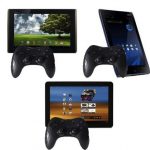
To keep up with the shifting tide of video game distribution and the increasing popularity of mobile tablets and smartphones as video game systems, brick-and-mortar video game retailer GameStop was said to be working on an "Android-based gaming platform."
Now, the retailer has begun its push by offering the 7" Acer Iconia Tab A100, the Samsung Galaxy Tab 10.1, and the Asus Eee Pad Transformer in bundles that come with a special Bluetooth game controller, the Kongregate Arcade app, digital subscription to GameStop's Game Informer magazine, and a handful of exclusive games.
Forget the consumer tablet market, Dell's Android devices get military approval

The consumerization of IT isn't just taking place in the private sector. Consumer mobile devices are moving uncharacteristically quickly through public sector regulations to be used in government and military as well, and the Department of Defense is now on board with Android.
This week, Dell announced its Mobile Security for Android platform has been certified for use within the U.S. Department of Defense by the Defense Information Systems Agency (DISA).
HP crams 2,800 servers into a single rack in 'Project Moonshot'

Following last week's introduction of the 64-bit ARMv8 architecture, leading PC and IT systems company Hewlett-Packard on Tuesday officially announced its low-power, massive-scale datacenter initiative called "Project Moonshot" will initially utilize ARM processors exclusively.
HP's mission with Project Moonshot is to reduce data center size by 94 percent, energy consumption by 89 percent, and cost by 63 percent by using lower power servers in "hyperscale."
Still early in the 20nm era, ARM acquires circuit design company Prolific

ARM, the UK-based company behind the reduced instruction set processor architecture of the same name, announced on Tuesday that it had acquired long-running chip design partner Prolific Inc.. The amount of money ARM put toward the acquisition was not disclosed.
Consumers won't directly see the fruits of this acquisition for several years, but the intent is clear: ARM is strengthening its talent pool and intellectual property for circuits 20nm process and smaller.
AMD launches new entry-level workstation graphics card: FirePro V4900
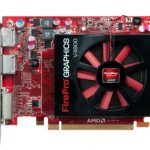
Advanced Micro Devices (AMD) on Tuesday launched its latest professional graphics card in retail, the FirePro V4900, which targets the entry level of professional graphics workstations.
WIth a pricetag of just $189, AMD's FirePro V4900 has 1GB of 128-bit GDDR5 RAM that drives memory bandwidth of 64 GB/s. It's not the most powerful of AMD's FirePro units, but it is priced to move, and will come as the default graphics card in certain Dell, HP, and Fujitsu workstations.
5 real-life tales of terror from Apple

To kick off Halloween today, Betanews' Managing Editor Joe Wilcox gave us a lighthearted list of 10 things about Microsoft to be scared of. Here's a slightly more grim list of stories from the Infinite Loop.
HORROR FACTORY--- Though nearly every consumer electronics company uses some Chinese contractors for parts or manufacturing, Apple has a black mark on its ethical record for the unsafe working conditions at Chinese factories that supply parts for the iPad, iPhone, and iPod product lines. Stories of labor horrors include rash of employee suicides, and fatal explosions at Foxconn, and fatalities from exposure to neurotoxin N-Hexane at touchscreen supplier Wintek.
Ubuntu will be on Tablets, Smartphones, TVs

Popular Linux distribution Ubuntu will be coming to tablets, smartphones, and smart TVs, Canonical Inc. founder Mark Shuttleworth said on Monday.
Though the introduction of a "mobile" Ubuntu has no timeline and isn't expected any time soon (Shuttleworth said it will be available by 14.04 LTS), the announcement of this new version is part of a continuing push to bring the Linux distro into the mainstream.
Google TV gets generally more 'Googly' with Android apps, new YouTube
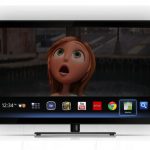
The major software update to Google TV, which has been expected for several months, has finally been deemed ready for user consumption, and will be rolling out to Sony's Google TV devices next week, and Logitech's Google TV-powered Revue set top box "soon thereafter." The update brings Android apps to Google TV, fixes the YouTube interface, overhauls the general flow of the user interface.
This update corrects some of the aspects of Google TV that made it feel like a false start. The core idea behind Google TV was both tempting and impressive; The power of unified Google search for live TV content and streaming, web-based content remains an impressive feature. However, the execution of this idea didn't make consumers stand up and applaud.
ARM gets into the server game, goes 64-bit with new ARMv8 architecture

ARM Holdings, the British company behind the popular ARM processor architecture used in more than 15 billion mobile devices, announced this week that the newest version of the ARM architecture will add 64-bit processing for the first time ever.
This new architecture has two main execution states, AArch64 and AArch32. The AArch64 execution state introduces a new instruction set, A64 for 64-bit processing, and AArch32 supports the existing ARM instruction set that is used in all of ARM's previous offerings, including the popular Cortex A9 and Cortex A15 processors being used by chipmakers such as Broadcom, Texas Instruments, Samsung, and Toshiba.
Android-powered video game consoles: the time is right
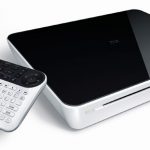
Just over one week ago, Google officially debuted Ice Cream Sandwich, the next version of the Android mobile operating system, which for the first time unifies smartphones and mobile tablets under the same operating system.
Android 4.0 adds support for cursor hover events, stylus distance/tilt/orientation, and mouse button events, but the most exciting new HID support was highlighted in a tweet from Google framework engineer Romain Guy last Friday:
HP pulls a Netflix, decides against PC division spin-off
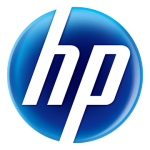
Hewlett-Packard on Thursday announced it will not spin off its Personal Systems group. For the last month, the company has been looking at possible "alternatives" for the PSG -better known as the consumer computer portion of HP that leads the global market- and one of the options the company discussed was turning it into a separate company, akin to what IBM did when it sold off its PC division to Lenovo more than five years ago.
"HP objectively evaluated the strategic, financial and operational impact of spinning off PSG. It’s clear after our analysis that keeping PSG within HP is right for customers and partners, right for shareholders, and right for employees,” said HP's new president and chief executive officer Meg Whitman. “HP is committed to PSG, and together we are stronger.”
Mobile browser compatibility: Test it, or let someone else worry about it

Testing a site for mobile browser compatibility can be a tricky matter. Each of the different mobile platforms has their own built-in browser in addition to downloadable third-party ones, there are the different screen sizes and resolutions, different orientation sensors, and different processor power profiles.
And there's the ever-present problem of plug-in support and support for the new, growing browser technologies like HTML5 and CSS3.
Sony buys Ericsson out of mobile phone joint venture, both companies happy
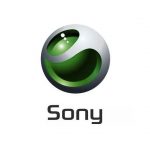
Sony Corporation's joint venture with Swedish telecommunications leader Ericsson will become the sole property of Sony, the two companies announced on Thursday. Sony will acquire Ericsson's 50 percent stake in the joint venture for approximately 1.05 billion Euro in cash.
This change in ownership will affect quite a few aspects of both companies' businesses. Firstly and perhaps most importantly, Ericsson, which has a long-standing goal of connecting 50 billion devices, can take its focus off of handsets, a technology it views as "first wave connectivity," and concentrate on the areas where it is most powerful: components and infrastructure. This way, it can focus on the future of "networked everything" rather than the past of consumer electronics.
Up close with Nokia-exclusive Windows Phone apps: Drive and Maps [video]
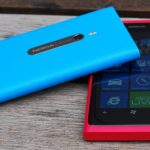
Along with Nokia's new Lumia line of Windows Phones, the Finnish mobile phone maker also debuted a handful of new applications that it will have that other Windows Phones will not have: Drive, Maps, and Music.
We didn't get to see Music today because of unspecified "licensing issues," but we did get to look at the impressive Drive turn by turn navigation mode and Maps location, positioning and mapping service.
Hands-on with Nokia's first Windows Phones [slideshow]

Nokia World's low-key United States branch event was held on Wednesday morning in a hotel overlooking downtown Manhattan, and the main attractions were the Lumia 800 and Lumia 710, Nokia's first devices powered by Windows Phone, which were announced earlier in the morning in London.
The Lumia 800 will be Nokia's premium smartphone for the U.S. market, and the 710 will be the "mainstream" device. Though the two are very similar in terms of internal specs (they differ only in storage capacity and camera quality,) the main difference between the two is in their bodies.
Tim's Bio
Tim Conneally was born into dumpster tech. His father was an ARPANET research pioneer and equipped his kids with discarded tech gear, second-hand musical instruments, and government issue foreign language instruction tapes. After years of building Frankenstein computers from rubbish and playing raucous music in clubs across the country (and briefly on MTV) Tim grew into an adult with deep, twisted roots and an eye on the future. He most passionately covers mobile technology, user interfaces and applications, the science and policy of the wireless world, and watching different technologies shrink and converge.
© 1998-2025 BetaNews, Inc. All Rights Reserved. About Us - Privacy Policy - Cookie Policy - Sitemap.
